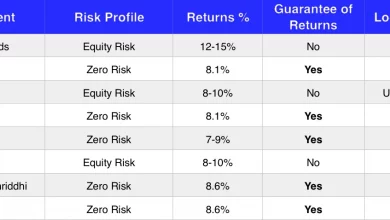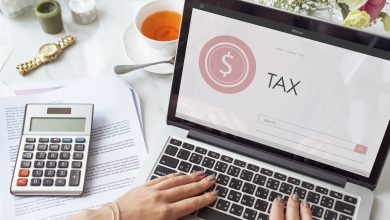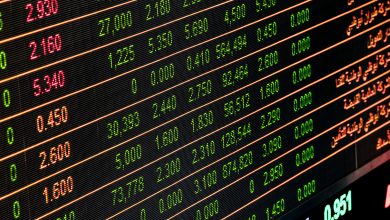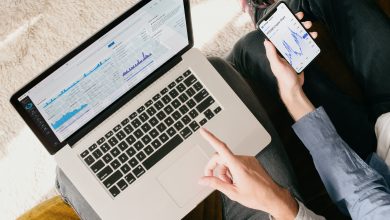WHAT IS THE HANG SENG?
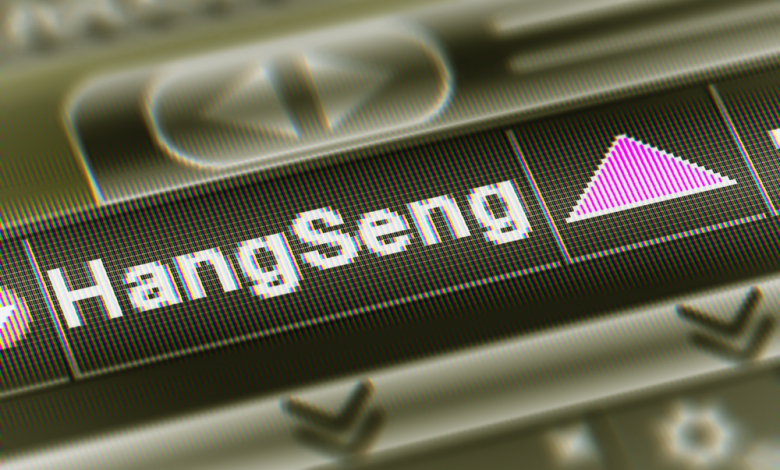
The Hang Seng Index (HSI) is a Hong Kong stock market index market capitalization. It keeps track of the 50 most liquid and biggest businesses on the Hong Kong Stock Exchange. While the Hang Seng live index is perhaps the most widely reported indicator of Hong Kong’s economic success, it also draws ambitious day traders hoping to earn from the market price swings in the short term.
This article will give you insight into what is Hang Seng? from Its history and factors influencing the Hang Seng Index, to its predictions, and trading hours, as well as some important features and helpful hints.
Table of contents
- WHAT IS THE HANG SENG?
- BRIEF HISTORY OF HANG SENG INDEX
- HANG SENG INDEX COMPOSITION
- HOW HANG SENG WORKS
- HANG SENG CLASSIFICATION SYSTEM
- HANG SENG LISTING CRITERIA
- TRADING HOURS FOR THE HANG SENG INDEX
- FACTORS THAT INFLUENCE THE HANG SENG INDEX
- WHY DAY TRADE THE HANG SENG?
- THE HANG SENG TRADING TIPS
- IN CONCLUSION
WHAT IS THE HANG SENG?
The HSI is a market capitalization-weighted stock market index that is adjusted for free float. It appears to reflect the most influential players on the Hong Kong stock exchange. It now makes up about 65 percent of the exchange’s entire market capitalization.
The Hang Seng participants are divided into four groups, which include: Properties/Real-estate, Utilities, and Commerce & industries, and Finance.
An overview of Hang Seng Index
The Hang Seng Index (HSI) can be explained as the performance measurement of the 50 biggest businesses on the Hong Kong Stock Exchange, which was created on the 24th of November, 1969. The market capitalization-weighted index accounts for over 40% of the entire market capitalization within the Hong Kong exchange, making it the most closely watched economic indicator in the city.
The Hang Seng Index gives overseas investors a rapid snapshot of Hong Kong’s stock market condition, which can be hard to discern when looking at different stocks. The Hang Seng additionally acts as a proxy for the larger Asian market, particularly China’s stock market, which is frequently mispriced based on capital restrictions owing to its global character.
Several exchange-traded funds (ETFs) that give straightforward access into Hong Kong’s economy in a single asset are based on the Hang Seng today, exactly like some other indexes. These exchange-traded funds (ETFs) are a more straightforward choice than American Depository Receipts (ADRs), which give extra exposure to different Hong Kong equities that must be included in a larger portfolio to guarantee diversity.
BRIEF HISTORY OF HANG SENG INDEX
The HSI, which has been in operation for over 50 years, was primarily devised by Ho Sin Hang, a Hang Seng Bank chairman to establish a ‘Hong Kong Dow Jones industrial average,’ and appears to be doing exactly that at the moment. Since then, the index has been maintained by the Hang Seng Index Services Limited, a Hang Seng Bank subsidiary.
The HSI index began with a 100-point basis based on the overall value of the companies’ stocks during the Hang Seng stock market closing on the 31st of July, 1964. Prices initially passed the 10,000 level in the year 1993, they reached the 20,000 marks roughly after 13 years, however, it only took just ten months to reach the 30,000 milestones in October 2017.
In the previous two decades, the HSI has had its biggest year performance in terms of percentage change, with a profits rise of 68.8%, and the worst year performance in terms of declines, with an annual drop of 48.27 percent, due to the financial crisis in the year 2008.
The Hang Seng history, like the Hong Kong exchange, has been a frequent victim of fatal typhoons, needing to halt market operations when the Hong Kong Weather stations release typhoon signals or black downpour warnings.
HANG SENG INDEX COMPOSITION
The Hang Seng Index (HIS) is comprised of the Hong Kong Stock Exchange’s most 50 biggest and liquid firms. As a result, a larger component of the stocks will have a bigger impact on the total index. To prevent any individual stock dominance, representation is restricted at 10%, with only the HSBC Holdings last announced to be reaching the threshold.
The 50 HSI component stocks may be divided into basically four groups as said earlier on, each of which has its very own sub-index. These sub-indexes include utilities, finance, commerce & industry and, properties. The index is reviewed every three months.
HOW HANG SENG WORKS
To have an understanding of exactly how the Hang Seng works, one must first understand the meaning of capitalization-weighted indexes. Simply put, the index ranks components by overall market cap. As a result, the largest constituents receive a larger weighting percentage, while the smaller constituencies receive a lower weighting percentage.
Today, the Nasdaq Composite Index, FTSE 100, and S&P 500 are among several global markets which have indexes functioning in this way.
Capitalization-weighted index calculation
It’s pretty simple to calculate the value of a capitalization-weighted index. To get the overall market value, just multiply each of the constituent’s market prices by the total number of outstanding shares. The weight of a component in the index is determined by the magnitude of this market value in proportion to the entire market value of the listed firms.
HANG SENG CLASSIFICATION SYSTEM
The Hang Seng splits its components even further into distinct industries. HSI Company Limited established the Hang Seng Industry Classification System (previously known as the Hang Seng Stock(HSS) Classification System) to do this.
The classification rules are quite straightforward. They take into account the following factors:
• Classification update
Following any substantial transformation in a company’s operations, such as an acquisition or merger, modifications to a stock’s industry sector may be made.
• Net sales
The total revenue generated from sales by each company sector is the key criterion for stock categorization. Profit and assets will be taken into consideration as well.
• The Main source of revenue
A company’s sector is determined by its primary source of sales revenue, as well as profit and assets, if applicable.
HANG SENG LISTING CRITERIA
A Hang Seng candidate must fulfill a number of requirements in order to be considered for inclusion in the index:
• Companies must account for at least 90% of the entire turnover on the Hong Kong Limited Stock Exchange.
•The top 90% of the nominee’s overall market value of each of its ordinary shares must be made up of constituents.
• They must have nothing less than 24 months of listing history. Otherwise, they’ll have to adhere to the rules for newly listed large-capitalization companies. The lower their rating at the review period, the shorter time they must be on the list.
After a firm has checked all of the first boxes, a final selection is determined based on sub-sector reflections, market capitalization, financial performance, and turnover rankings.
TRADING HOURS FOR THE HANG SENG INDEX
The Hang Seng Index(HSI) trades within the weekdays (Monday to Friday) from 9:30 a.m. to 4:00 p.m. Hong Kong standard time, with a one-hour break which kickstarts by noon and ends at 1:00 p.m. In the meantime, the HS50 index, which follows IG’s moves, trades continuously within the sessions.
FACTORS THAT INFLUENCE THE HANG SENG INDEX
Equity indexes, which are a cumulative measure of stock performance, are impacted by the same factors as investing or trading in stocks. Fundamental, technical, or sentimental issues might be involved.
Considering the HSI’s proximity to China and the high number of Chinese businesses that dominate it, one may anticipate China’s economic and political environment to have a significant impact on price fluctuations.
The performance of the different Chinese firms listed on the Hang Seng Index, and hence the entire index, is also affected by changes in the Chinese yuan. Given the interconnected economies, the yuan depreciation in August 2015 caught investors off guard, sending the Hang Seng Index down and regional equity indexes down as well. lately, the United State and China have initiated a number of retaliatory tariffs attacks that have hit the Hang Seng Index from both market sentiment and fundamental standpoint, causing the Hang Seng Index to fall into the bear market zone notwithstanding Asia’s continuous economic growth.
WHY DAY TRADE THE HANG SENG?
Over the last couple of years, a rising number of day traders have turned their focus to trading the online Hang Seng Index, regardless of their geological location. What exactly caused the sudden turnaround.
Hong Kong is a reasonably open economy and one of the world’s most important financial centers. It has low-cost taxation, international financial markets. and low-cost port trade.
Following China’s Shanghai Stock Exchange and Japan’s Tokyo Stock Exchange, the Hong Kong Stock Exchange has grown to become the third-largest in Asia, as well as the world’s sixth-largest stock market.
While a growing number of traders are interested in buying and selling currency, speculating on the Hang Seng stock price (Hang Seng share price) is a more straightforward option. The Hang Seng tends to appeal to individuals who wish to bypass the complex realm of currency trading.
THE HANG SENG TRADING TIPS
Start out Prepared
It’s not a good idea to start your trading day by watching the Hang Seng stock exchange live. You should be at your workstation prepared before the Hang Seng trading opens if you want to get a competitive advantage. You should be on the lookout for stocks that are undervalued.
As a trader that is profit-oriented as soon as the morning trading session begins, you should have examined an Hang Seng index’s historical data chart, screened equities, and identified a handful that you will monitor closely throughout the day.
Practice With Demo Account First.
Why not test a Trading with a demo account first is the best way to start learning how to trade or test run a new strategy of yours so as not to subject your hard-earned money to maximum risk while trading the Hang Seng market live.
These are virtual money accounts that help you in creating strategies and familiarize yourself with market circumstances.
Several brokers now provide this service for free with no obligation, making it an excellent method to screen potential brokers. You can consider upgrading to a real-time, live account once you’ve gained confidence and successfully mastered historical chats.
Keep your ears open to the news
Monitoring the newest news is one of the best trading strategies for Hang Seng. Major news developments will cause live quotes and pricing to fluctuate. Daily updates are an excellent method to keep up with market changes and retain a long-term perspective.
Upgraded Your Trading Skills
What any profitable traders out there will tell you is that never outgrown the need to continually learn. The Hang Seng market is notorious for its unpredictability. So looking for materials to help with chart setups, technical analysis, and new proven strategy may all be beneficial.
Have A Trading Diary.
Trading diaries, though frequently ignored, may be a valuable addition to your trading armory. It will have you in keeping track of the position of entry and exit, prices, buying and selling dates, trade reason, and size of the position.
With this, you may easily analyze your trading performance by simply entering this data or information into any preferred analysis tools. This could help you discover that spotting faults in your plan are a lot easier.
IN CONCLUSION
Real-time trading on the Hang Seng provides a potent and dynamic profitable way to profit on hourly price swings. Hang Seng’s Index price fluctuation, on the other hand, entails significant dangers. Because of this, it’s more advisable to have a dependable broker, a well-thought-out plan, and a will to always learn and adapt to any market conditions.

